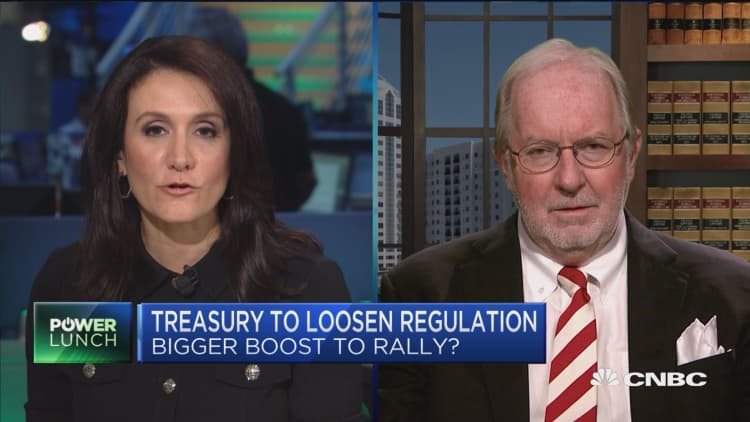
U.S. stocks closed mostly lower on Friday after data showed the labor market experienced its first contraction in seven years.
The Dow Jones industrial average fell 1.72 points to close at 22,773.67, with Chevron and Boeing contributing the most to the losses. The index also snapped a seven-day winning streak.
The declined 0.1 percent to 2,549.33, with consumer staples and telecommunications leading decliners. The index also snapped an eight-day winning streak — its longest in four years — and also ended a streak of six straigh record closes, the longest such streak since 1997.
The Nasdaq composite eked out a record high, rising 0.07 percent to 6,590.18.
Major U.S. Indexes
The U.S. lost 33,000 jobs September due in large part to two major hurricanes hitting the country. Last month markets the first time the U.S. labor market contracted since 2010. Economists polled by Reuters had forecast a gain of 90,000 jobs.
Despite the weak headline number, average hourly earnings rose to an annualized rate of 2.9 percent. Hourly earnings are closely watched by investors looking for indications on inflation. The unemployment rate also fell to a 16-year low of 4.2 percent.
"Trying to guess the headline number on this one was a fool's game," said Art Hogan, chief market strategist at Wunderlich Securities. The report "looks pretty sloppy from the top, but there's more good news than bad."
Treasury yields jumped after the report's release. The benchmark 10-year yield advanced to 2.362 percent, while the two-year yield rose to 1.51 percent, notching its highest level since 2008.
"Everyone knew the report would be confusing because of the distortions from [hurricanes] Harvey and Irma," said Richard Piccirillo, managing director at PGIM Fixed Income. "But despite the distortions, average hourly earnings went down and unemployment went down. I think the bond market is reacting a bit to that."
The strong wages data also increases the chances of a Federal Reserve rate hike by December, according to Minh Trang, senior FX trader at Silicon Valley Bank.
"Over the past few months, they've reopened the path for another rate hike," he said. From before the central bank's previous meeting [to today], the odds of a rate hike have risen from about 30 percent to 80 percent."
Stocks were coming off yet another record-setting session. The S&P 500 posted its sixth straight all-time closing high on Thursday, marking its longest streak of record closes since 1997. The Dow and Nasdaq also notched record highs.
The major indexes also posted strong weekly gains, rising more than 1 percent.
Sentiment on Wall Street has been lifted lately by strong economic data and renewed hope of tax reform.
The ISM manufacturing and nonmanufacturing numbers released earlier this week hit multi-year highs. Meanwhile, the House passed a $4.1 trillion budget on Thursday, which marked the first concrete step toward enacting tax reform.
"We've seen this reflation trade and that's correlated with tax reform," said Jeff Zipper, managing director of investments at the Private Client Reserve of U.S. Bank. "We're also seeing this synchronized move higher, not just globally but also domestically."




